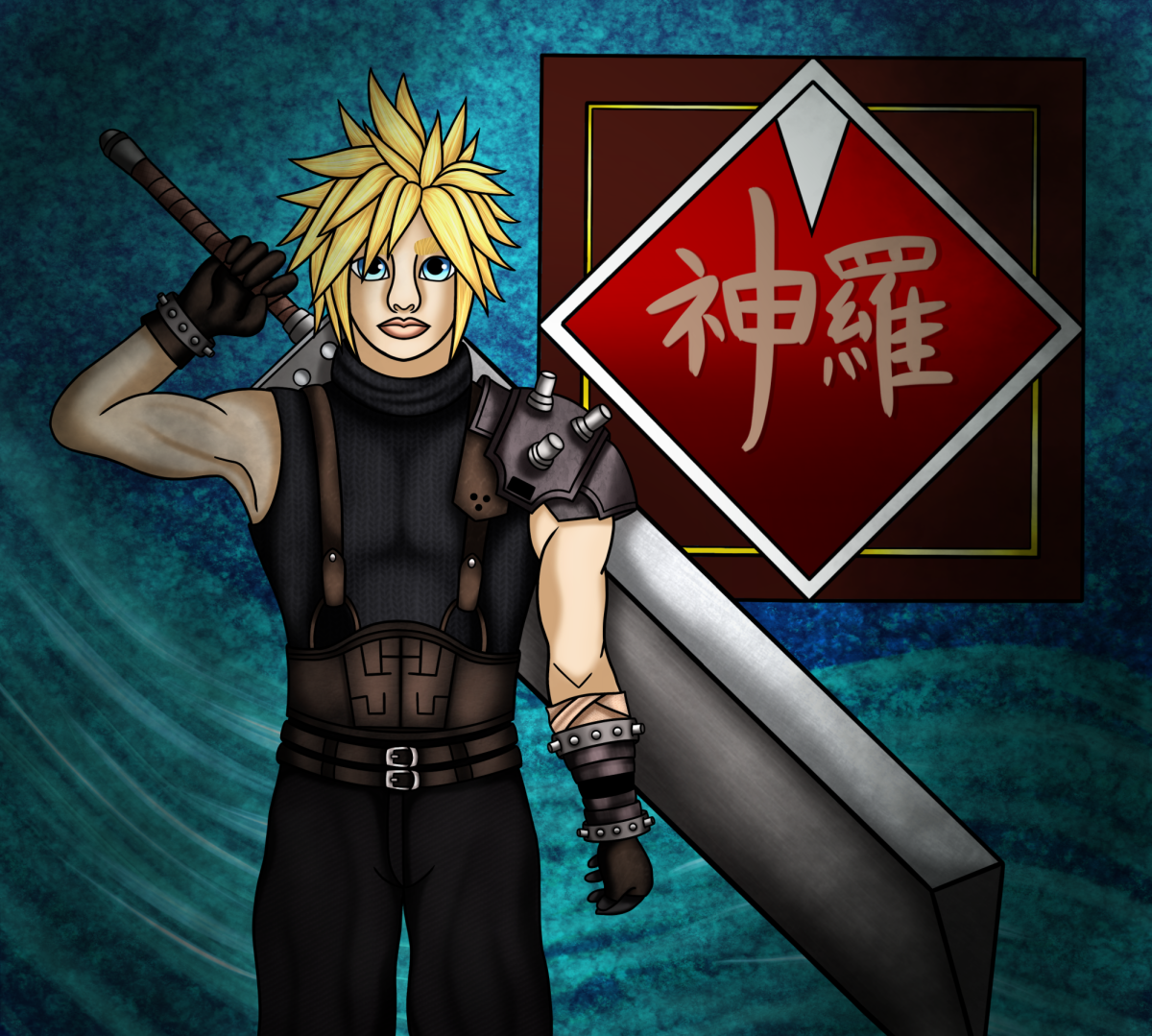
“Our beloved planet is dying. Slowly. Silently. Painfully.” – Sephiroth, “Final Fantasy VII Remake”
A monopolistic megacorporation that will do anything to expand its power. A planet being drained of its resources and choked to satiate human greed. These are the major plot points of “Final Fantasy VII”, a world-renowned role-playing game whose characters and themes have captivated the world for nearly three decades. With issues such as unregulated capitalism and climate change on the minds of many people today, I believe that the game’s story and themes were way ahead of their time.
“Final Fantasy VII” (“FFVII”) was originally released in 1997 on the first Sony PlayStation by Square, which is now Square Enix. It was heralded as a groundbreaking game for its three-dimensional graphics, intriguing cast and story and a memorable soundtrack. Since its release, multiple spin-offs and additions have joined the expanded universe, which is officially known as the “Compilation”.
Currently, Square Enix is working on the “Remake” project, a high-definition retelling of the original story with added elements that transform the classic game into a full-scale modern RPG. The first entry in the remake trilogy, “Final Fantasy VII Remake”, released in April of 2020 to critical acclaim.
Its sequel, “Final Fantasy VII Rebirth”, will be released on Feb. 29, 2024 exclusively on the PlayStation 5. “Rebirth” has been one of the most anticipated games in recent years, with many fans purchasing PS5s to experience the next chapter in the beloved saga.
The plot of the original game is centered around the machinations of the Shinra Electric Power Company, a fictional megacorporation that harnesses the life force of the planet, known as mako, as a means of powering the metropolitan city of Midgar.
While the processing of mako is beneficial in this manner, it’s slowly destroying the planet, preventing plant life from growing within the city and creating desolate gray wastelands in the surrounding areas. The company uses any tactic necessary to achieve its goals, regardless of any backlash or suffering it creates in the process. Additionally, any anti-Shinra forces are swiftly dealt with, creating an authoritarian de facto government within Midgar.
While these plot elements are fictional, they are reflected in the current issues of climate change and mega-capitalism. According to The Guardian, the top 20 companies that have produced the most carbon emissions are all part of the energy and oil industries, and they include well-known names such as Chevron and Shell. The most direct real-life analogy to mako processing is the practice of oil drilling. The United States Energy Information Administration states hydraulic fracturing and oil spills as two major environmental impacts of oil processing.
Hydraulic fracturing is the process of obtaining oil from geological formations, and it requires large amounts of water, which in turn reduces its availability and disturbs aquatic ecosystems. The devastating effects of oil spills need no introduction: they include soil and water pollution, explosions, fires and most obviously, the contamination and deaths of marine wildlife.
Similarly to how oil companies drill in remote parts of the world, Shinra’s all-encompassing pursuit of mako energy results in the construction of reactors all over the planet. The presence of the toxic substance causes regional monsters to mutate and annihilate natural wildlife. Additionally, there’s the risk of reactor explosions that can destroy whole villages.
In Midgar itself, Shinra has little regard for the residents, and the poor dwell in the slums, which consist of ramshackle houses surrounded by junkyards. This is analogous to impoverished communities in the real world facing disasters such as pollution and depletion of resources. Shinra’s all-encompassing greed and disregard for ethics or long-term outcomes is a blight on the planet and its people.
Unsurprisingly, the conflicts within the game also create emotional turmoil among the characters. The main protagonist is Cloud Strife, a former member of SOLDIER, Shinra’s elite military force. He is recruited by the eco-terrorist group Avalanche, which seeks retribution against Shinra by bombing Midgar’s mako reactors.
As a hired mercenary, Cloud is indifferent to Avalanche’s cause (his signature catchphrase is “Not interested”), simply wanting his pay and acting coldly towards the members. He clashes with Barret Wallace, the leader who harbors a grudge towards Shinra and fervently insists that the planet is dying from mako processing. On the contrary, Tifa Lockhart, another member of Avalanche and Cloud’s childhood friend, feels that the act of bombing mako reactors is too extreme and isn’t the right solution.
The mission of Avalanche is reflected in today’s plethora of environmental activist groups. The bombing of Midgar’s mako reactors is a form of climate protesting, albeit much more extreme than those led by Greta Thunberg and other young advocates. However, it creates its own damage in the form of power outages and urban destruction, thus making Avalanche’s methods equally as harmful as Shinra’s mako processing.
This is reminiscent of several climate protests that have incited outrage rather than sympathy, such as those involving the splattering of soup on famous artworks. While the messages of these protesters are strong, the execution is wholly unnecessary and less likely to push their cause. Avalanche’s actions in the game, while done with good intentions, prove to be a catastrophic setup for Shinra to enact revenge by destroying the group’s headquarters and killing hundreds of Midgar’s residents.
Ever since I was introduced to “FFVII” a few years ago, my understanding of capitalism’s impact on our planet has increased greatly because of the parallels between real-world megacorporations and Shinra. I feel that learning the game’s story and themes are great ways to promote environmentalism.
Like many young adults, I find learning through engaging media much more appealing than simply reading about current issues. However, if modern media effectively communicates these messages in a manner that’s captivating and memorable, then I’m sure more will come to understand and care about the devastating climate crisis we are facing.
















































































